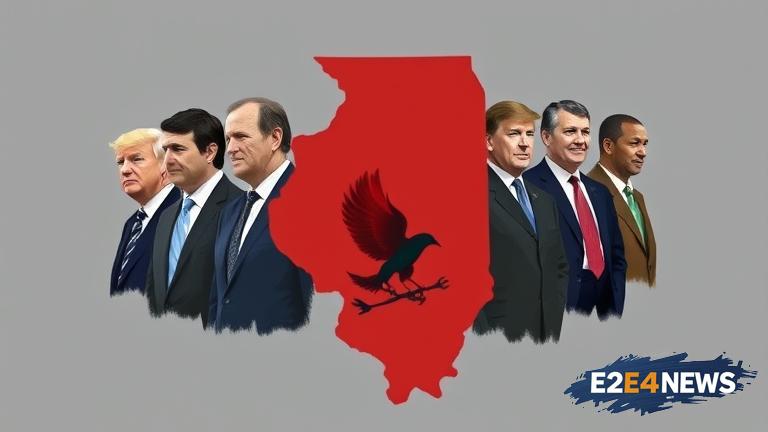In a bold move, Governor J.B. Pritzker and other Illinois leaders have publicly rejected President Trump’s plans to deploy military troops to the state. The decision comes after Trump announced his intention to send federal agents to Chicago and other major cities across the country, citing concerns over rising crime rates. However, Pritzker and other Illinois leaders argue that the deployment of military troops would be a gross overreach of federal power and would only serve to exacerbate tensions between law enforcement and local communities. The governor has stated that he will not allow the deployment of military troops in Illinois, citing concerns over the potential erosion of civil liberties and the impact on community safety. Illinois leaders have also expressed concerns over the lack of transparency and communication from the Trump administration regarding the deployment plans. The move has been widely criticized by civil rights groups and community leaders, who argue that the deployment of military troops would only serve to further militarize law enforcement and perpetuate systemic racism. Despite the criticism, the Trump administration has remained steadfast in its commitment to deploying military troops to cities across the country. The decision has sparked a heated debate over the role of federal power in local law enforcement and the potential consequences of deploying military troops in civilian areas. Illinois leaders have vowed to continue fighting against the deployment plans, citing concerns over the potential impact on community safety and civil liberties. The state has a long history of community-led initiatives and grassroots organizing, and many are hoping that this momentum will continue in the face of federal overreach. The rejection of Trump’s deployment plans is seen as a major victory for community leaders and civil rights groups, who have been working tirelessly to push back against the administration’s efforts to militarize law enforcement. However, the fight is far from over, and Illinois leaders will need to continue to work together to ensure that the rights and safety of their communities are protected. The deployment of military troops would have far-reaching consequences for communities across the state, from the potential for increased violence and trauma to the erosion of trust between law enforcement and local residents. Illinois leaders are committed to finding alternative solutions to address rising crime rates, including investing in community-led initiatives and evidence-based programs. The state has already seen success with these types of programs, which have been shown to reduce crime rates and improve community safety. Despite the challenges ahead, Illinois leaders remain optimistic about the potential for positive change and are committed to continuing the fight against federal overreach. The rejection of Trump’s deployment plans is a testament to the power of community organizing and the importance of protecting civil liberties. As the situation continues to unfold, it is clear that Illinois leaders will play a critical role in shaping the national conversation around policing and community safety. The state’s commitment to community-led initiatives and grassroots organizing serves as a model for other cities and states across the country. In the face of federal overreach, Illinois leaders have shown that it is possible to push back against unjust policies and protect the rights and safety of local communities. The fight against Trump’s deployment plans is far from over, but one thing is clear: Illinois leaders will continue to stand strong in their commitment to community safety and civil liberties. The state’s rejection of the deployment plans is a major victory for community leaders and civil rights groups, and serves as a powerful reminder of the importance of protecting the rights and safety of all individuals. As the national conversation around policing and community safety continues to evolve, it is clear that Illinois will play a critical role in shaping the future of law enforcement and community relations. The state’s commitment to community-led initiatives and grassroots organizing serves as a beacon of hope for cities and states across the country, and its rejection of Trump’s deployment plans is a powerful testament to the power of community organizing and the importance of protecting civil liberties.
